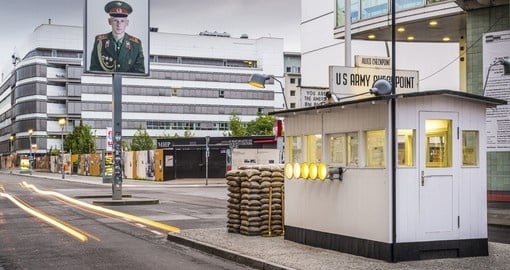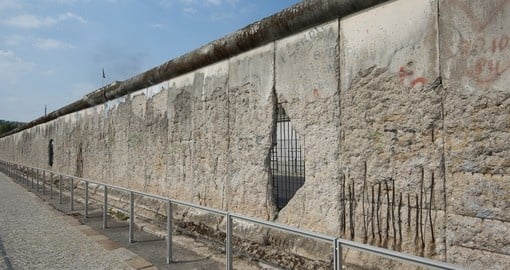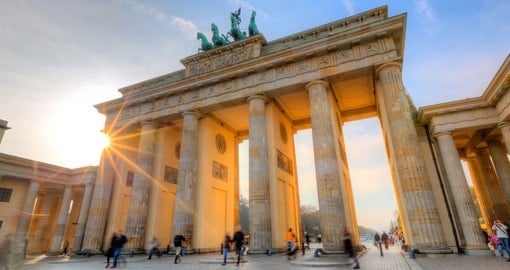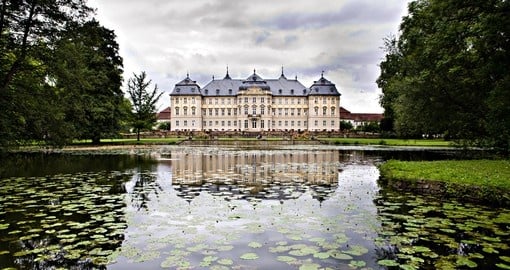Germany History
For much of its varied and interesting history, Germany has rarely been one, united country. Instead, over its long past, what is now known as Germany was once states, principalities, kingdoms and more. With its often divided presence, many people tried to unite the country, including Charlemagne of the Holy Roman Empire. In the 9th century, Charlemagne was successful in ruling over a large territory that included modern-day Germany, yet it was not strong enough to last and within a single generation, the power of the territory was merely symbolic.
The 14th century proved disastrous not only for a fragmented Germany but for all of Europe. Wars and the Black Plague wiped out between 30-60% of the continent’s population. In the 15th century, the Habsburgs were successful in securing a hold on the Holy Roman Emperor which would last into the 19th century. Unfortunately, the empire’s various territories were constantly at odds with each other thus preventing the unity that had occurred in France and England.
The Reformation, an incredibly important period in European history, was born in Germany when Martin Luther posted his 95 Theses to the town square. Luther hoped to highlight corruption in the Catholic Church and as a result, his desire for change sparked the Reformation that spread quickly across the continent. The next two centuries witnessed the Scientific Revolution and many great thinkers emerged from Germany like Nicholas Copernicus and Johannes Kepler.
The 19th century was a time of change for Germany as the desire for unification grew. Tired of several states, each with its own ruler and even currency, much of the population sought nationhood. The March Revolution erupted in 1848 but was ultimately unsuccessful as King Friedrich Wilhelm VI rejected a united nation because it would threaten his power. However, unification was inevitable and occurred more than two decades later in 1871, after the Franco-Prussian war. This unification was ushered in by Otto von Bismarck who helped to maintain peace in Europe until 1914.
The First World War was a massive conflict from 1914 to 1918 between the Allies (Britain, France and Russia) and the Central Powers (Germany and Austria-Hungary). It resulted in more than 9 million deaths and an incredible amount of destruction. When Germany was defeated in 1918, the German Empire ceased to exist and the Treaty of Versailles (1919) placed the blame for the war on Germany. The country was forced to pay reparations, limit the military and give up territory.
Following the war, Germany entered the Weimar Republic which looked to bring about democracy. However, by mid-1933, Adolf Hitler and the National Socialist German Workers’ Party (Nazis) destroyed the idea of democracy, instead establishing a dictatorship. Under Hitler the Nuremberg Laws of 1935 stripped Germany’s Jewish and Roma populations of their citizenship and took away all of their rights. Despite this terror, Hitler instigated public works programs that helped bring Germany out of the economic disaster of the First World War, thus making him popular with a great deal of the population.
The Second World War (1939-1945) was a global war that was the deadliest conflict in human history. The Holocaust was responsible for the death of approximately six million Jews, as well as more than a million Roma people, communists, homosexuals and more. When the war ended in 1945, Hitler committed suicide and Germany was divided into four occupied zones headed by the Soviet Union, the United States, Britain and France. Of these zones, two states emerged, East and West Germany. While the East fell behind economically, the West grew to become one of the world’s richest nations.
These two states continued for years until 1990 when Germany was once again united and the infamous Berlin Wall was brought down. Today, Germany hosts the largest economy in Europe and has come a long way from the terrors of the 20th century. Its location in the heart of the continent as well as its history, cuisine, culture and landscapes have made it an increasingly popular tourist destination.
Germany Travel Information
At Goway we believe that a well-informed traveller is a safer traveller. With this in mind, we have compiled an easy-to-navigate travel information section dedicated to Germany.
Learn about the history and culture of Germany, the must-try food and drink, and what to pack in your suitcase. Read about Germany's nature and wildlife, weather and geography, along with 'Country Quickfacts' compiled by our travel experts. Our globetrotting tips, as well as our visa and health information, will help ensure you're properly prepared for a safe and enjoyable trip. The only way you could possibly learn more is by embarking on your journey and discovering Germany for yourself. Start exploring… book one of our Germany tours today!
Get a Trip Quote Order a Brochure




















